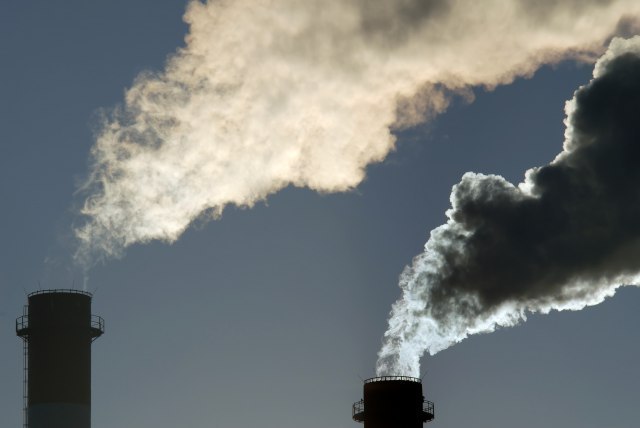Scientists warn: ''We have reached the peak; A disaster awaits us''
Experts predict that global emissions of carbon dioxide, which warms the Earth, will increase by another percent and thus reach a new maximum in 2023.
Monday, 23.10.2023.
10:15

Scientists warn: ''We have reached the peak; A disaster awaits us''
Also, it is warned that in this decade, carbon dioxide pollution must be reduced by almost 50 percent in order to achieve the set world goals, which are the limitation of global warming and the avoidance of a catastrophic impact on the climate.Glen Peters, director of the Norway-based International Institute for Climate Research, CICERO, said that global carbon dioxide emissions should have fallen by about 5 percent this year, but the opposite has happened.
The research that Ons conducted with his colleagues showed that these emissions continue to grow, and based on current expectations, we can expect an increase in carbon dioxide emissions between 0.5 and 1.5 percent this year.
"It is not likely that carbon dioxide emissions will fall in 2023," he told AFP. Preliminary data also indicate that it will be very difficult to reduce emissions quickly enough to meet the goals of the Paris Agreement to limit global warming to 1.5 degrees Celsius above pre-industrial values.
"Each year, carbon dioxide emissions continue to grow, which makes it difficult to achieve the goals of the Paris Agreement," said Peters. The final analysis will be published in December, when world leaders will meet for key UN climate talks in the United Arab Emirates.
The main topic of the negotiations will be the future of fossil fuels, the main source of carbon dioxide pollution. Earlier in the year, the International Energy Agency (IEA) warned of the negative impact of increased investment in fossil fuels and "extremely high emissions" during the economic recovery after the pandemic and the energy crisis fueled by Russia's invasion of Ukraine.
Peters believes that clean energy should displace demand for fossil fuels, but "it's still not happening on a larger scale, which is disappointing." Peters adds that scientists hoped that carbon dioxide emissions would peak in 2015 and that a tipping point would occur during the coronavirus pandemic.
"However, here we are in 2022, we have reached the peak again, and in 2023 we expect another one," this scientist said last year.
"I'm afraid we're only doing half the job, we're working on clean energy, but not on the other half, which is giving up fossil fuels," he concluded, as reported by Jutarnji list.























Komentari 0